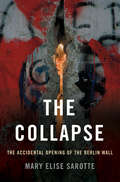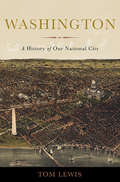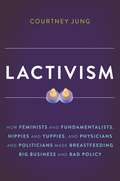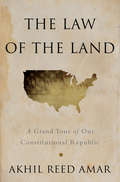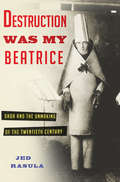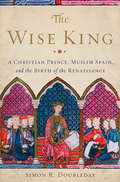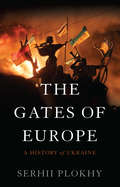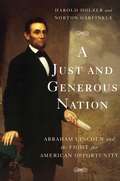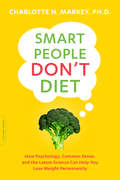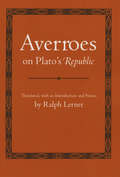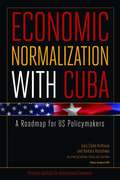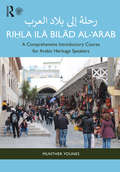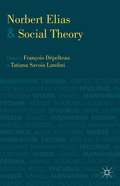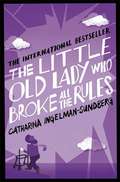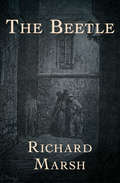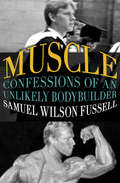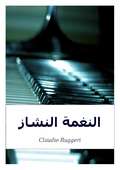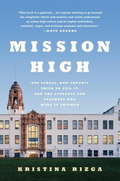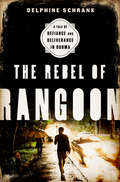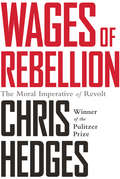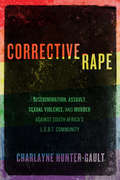- Table View
- List View
The Collapse: The Accidental Opening of the Berlin Wall
by Mary Elise SarotteThe Berlin Wall was erected in 1961 to end all traffic between the city’s two halves: the democratic west and the communist east. The iconic symbol of a divided Europe, the Wall became a focus of western political pressure on East Germany; as Ronald Reagan’s famously said in a 1987 speech in Berlin, "Mr. Gorbachev, tear down this wall!” But as award-winning historian Mary Sarotte shows in [Title TK] , the opening of the Wall on November 9, 1989 was not, as is commonly believed, the East German government’s deliberate concession to outside influence. It was an accident. A carelessly worded memo written by mid-level bureaucrats, a bumbling press conference given by an inept member of the East German Politburo, the negligence of government leaders, the bravery of ordinary people in East and West Berlin--these combined to bring about the end of nearly forty years of oppression, fear, and enmity in divided Berlin. When the news broke, Washington and Moscow could only stand by and watch as Tom Brokaw and other journalists narrated the televised broadcast of this critical moment in the thawing of the cold war. Sarotte opens her story in the months leading up to that fateful day. Following East German dissidents, she shows how their efforts coalesced around opposition to the regime’s restrictions on foreign travel. The city of Leipzig, close to the border with Czechoslovakia, became a hothouse of activism, and protests there quickly grew into massive demonstrations. The East German Politburo hoped to limit its citizens’ knowledge of these marches, but two daring dissidents, East Berliners Aram Radomski and Siegbert Schefke, managed to evade the Stasi and film the largest of them from a church tower. They then smuggled their tape to West Germany; broadcast in both nations, the footage galvanized activists across East Germany, and precipitated the stunning developments on November 9. Facing mounting pressure from its own citizens, the East German Politburo planned to put off enacting any meaningful change to its travel policy by issuing a deceptive ruling that would appear to offer more freedom, but which in fact would allow the state to maintain strict control over its citizen’s movements. But the bureaucrats tasked with preparing the "new” regulations misunderstood their task, and instead drafted a declaration that said East Germans could freely leave the country. This declaration ended up in the hands of regime spokesman Günter Schabowski, who announced the rules at a press conference without understanding their import. Stunned reporters were soon broadcasting the news around the world. Crowds of East Germans began streaming to the Wall, prompting a showdown with border guards, who received no support or direction from East German leadership as the throngs multiplied. By 11:30, Harald Jäger, a second-tier passport control officer, had had enough and finally opened the wall to the mob gathering outside his gate. Even though East German forces successfully regained control by the morning, it was too late--for the wall, for the regime, and for Communism in Eastern Europe. Drawing on evidence from archives in multiple countries and languages, along with dozens of interviews with key actors, including Harald Jäger, [Title TK] is the definitive account of the event that brought down the East German Politburo and came to represent the final collapse of the Cold War order.
Washington: A History of Our National City
by Tom LewisOn January 24, 1791, President George Washington chose the site for the young nation’s capital: ten miles square, it stretched from the highest point of navigation on the Potomac River, and encompassed the ports of Georgetown and Alexandria. From the moment the federal government moved to the District of Columbia in December 1800, Washington has been central to American identity and life. Shaped by politics and intrigue, poverty and largess, contradictions and compromises, Washington has been, from its beginnings, the stage on which our national dramas have played out. In Washington, the historian Tom Lewis paints a sweeping portrait of the capital city whose internal conflicts and promise have mirrored those of America writ large. Breathing life into the men and women who struggled to help the city realize its full potential, he introduces us to the mercurial French artist who created an ornate plan for the city “en grande”; members of the nearly forgotten anti-Catholic political party who halted construction of the Washington monument for a quarter century; and the cadre of congressmen who maintained segregation and blocked the city’s progress for decades. In the twentieth century Washington’s Mall and streets would witness a Ku Klux Klan march, the violent end to the encampment of World War I “Bonus Army” veterans, the 1963 March on Washington for Jobs and Freedom, and the painful rebuilding of the city in the wake of Martin Luther King, Jr. ’s assassination. “It is our national center,” Frederick Douglass once said of Washington, DC; “it belongs to us, and whether it is mean or majestic, whether arrayed in glory or covered in shame, we cannot but share its character and its destiny. ” Interweaving the story of the city’s physical transformation with a nuanced account of its political, economic, and social evolution, Lewis tells the powerful history of Washington, DC—the site of our nation’s highest ideals and some of our deepest failures.
Lactivism: How Feminists and Fundamentalists, Hippies and Yuppies, and Physicians and Politicians Made Breastfeeding Big Business and Bad Policy
by Courtney JungIs breast really best? Breastfeeding is widely assumed to be the healthiest choice, yet growing evidence suggests that its benefits have been greatly exaggerated. New moms are pressured by doctors, health officials, and friends to avoid the bottle at all costs--often at the expense of their jobs, their pocketbooks, and their well-being. In Lactivism, political scientist Courtney Jung offers the most deeply researched and far-reaching critique of breastfeeding advocacy to date. Drawing on her own experience as a devoted mother who breastfed her two children and her expertise as a social scientist, Jung investigates the benefits of breastfeeding and asks why so many people across the political spectrum are passionately invested in promoting it, even as its health benefits have been persuasively challenged. What emerges is an eye-opening story about class and race in America, the big business of breastfeeding, and the fraught politics of contemporary motherhood.
The Law of the Land: A Grand Tour of Our Constitutional Republic
by Akhil Reed AmarFrom Kennebunkport to Kauai, from the Rio Grande to the Northern Rockies, ours is a vast republic. While we may be united under one Constitution, separate and distinct states remain, each with its own constitution and culture. Geographic idiosyncrasies add more than just local character. Regional understandings of law and justice have shaped and reshaped our nation throughout history. America’s Constitution, our founding and unifying document, looks slightly different in California than it does in Kansas. In The Law of the Land, renowned legal scholar Akhil Reed Amar illustrates how geography, federalism, and regionalism have influenced some of the biggest questions in American constitutional law. Writing about Illinois, "the land of Lincoln,” Amar shows how our sixteenth president’s ideas about secession were influenced by his Midwestern upbringing and outlook. All of today’s Supreme Court justices, Amar notes, learned their law in the Northeast, and New Yorkers of various sorts dominate the judiciary as never before. The curious Bush v. Gore decision, Amar insists, must be assessed with careful attention to Florida law and the Florida Constitution. The second amendment appears in a particularly interesting light, he argues, when viewed from the perspective of Rocky Mountain cowboys and cowgirls. Propelled by Amar’s distinctively smart, lucid, and engaging prose, these essays allow general readers to see the historical roots of, and contemporary solutions to, many important constitutional questions. The Law of the Land illuminates our nation’s history and politics, and shows how America’s various local parts fit together to form a grand federal framework.
Destruction Was My Beatrice: Dada and the Unmaking of the Twentieth Century
by Jed RasulaIn 1916, as World War I raged around them, a group of bohemians gathered at a small nightclub in Zurich, Switzerland for a series of bizarre performances. Three readers simultaneously recited a poem in three languages; a monocle-wearing teenager performed a spell from New Zealand; another young man flung bits of papier-mâché into the air and glued them into place where they landed. One of these artists called the sessions "both buffoonery and a requiem mass. ” Soon they would be known by a more evocative name: Dada. In Destruction Was My Beatrice, modernist scholar Jed Rasula presents the first narrative history of the emergence, decline, and legacy of Dada, showing how this strange artistic phenomenon spread across Europe and then the world in the wake of the Great War, fundamentally reshaping modern culture in ways we’re still struggling to understand today.
The Wise King: A Christian Prince, Muslim Spain, and the Birth of the Renaissance
by Simon R. Doubleday"If I had been present at the Creation,” the thirteenth-century Spanish philosopher-king Alfonso X is said to have stated, "Many faults in the universe would have been avoided. ” Known as El Sabio, "the Wise,” Alfonso was renowned by friends and enemies alike for his sparkling intellect and extraordinary cultural achievements. In The Wise King, celebrated historian Simon R. Doubleday traces the story of the king’s life and times, leading us deep into his emotional world and showing how his intense admiration for Spain’s rich Islamic culture paved the way for the European Renaissance. In 1252, when Alfonso replaced his more militaristic father on the throne of Castile and León, the battle to reconquer Muslim territory on the Iberian Peninsula was raging fiercely. But even as he led his Christian soldiers onto the battlefield, Alfonso was seduced by the glories of Muslim Spain. His engagement with the Arabic-speaking culture of the South shaped his pursuit of astronomy, for which he was famed for centuries, and his profoundly humane vision of the world, which Dante, Petrarch, and later Italian humanists would inherit. A composer of lyric verses, and patron of works on board games, hunting, and the properties of stones, Alfonso is best known today for his Cantigas de Santa María (Songs of Holy Mary), which offer a remarkable window onto his world. His ongoing struggles as a king and as a man were distilled--in art, music, literature, and architecture--into something sublime that speaks to us powerfully across the centuries. An intimate biography of the Spanish ruler in whom two cultures converged, The Wise King introduces readers to a Renaissance man before his time, whose creative energy in the face of personal turmoil and existential threats to his kingdom would transform the course of Western history.
The Gates of Europe
by PlokhyUkraine is currently embroiled in a tense battle with Russia to preserve its economic and political independence. But today’s conflict is only the latest in a long history of battles over Ukraine’s existence as a sovereign nation. As award-winning historian Serhii Plokhy argues in The Gates of Europe, we must examine Ukraine’s past in order to understand its fraught present and likely future. Situated between Europe, Russia, and the Asian East, Ukraine was shaped by the empires that have used it as a strategic gateway between East and West—from the Romans and Ottomans to the Third Reich and the Soviet Union, all have engaged in global fights for supremacy on Ukrainian soil. Each invading army left a lasting mark on the landscape and on the population, making modern Ukraine an amalgam of competing cultures. Authoritative and vividly written, The Gates of Europe will be the definitive history of Ukraine for years to come.
The Gates of Europe
by PlokhyUkraine is currently embroiled in a tense battle with Russia to preserve its economic and political independence. But today’s conflict is only the latest in a long history of battles over Ukraine’s existence as a sovereign nation. As award-winning historian Serhii Plokhy argues in The Gates of Europe, we must examine Ukraine’s past in order to understand its fraught present and likely future. Situated between Europe, Russia, and the Asian East, Ukraine was shaped by the empires that have used it as a strategic gateway between East and West—from the Romans and Ottomans to the Third Reich and the Soviet Union, all have engaged in global fights for supremacy on Ukrainian soil. Each invading army left a lasting mark on the landscape and on the population, making modern Ukraine an amalgam of competing cultures. Authoritative and vividly written, The Gates of Europe will be the definitive history of Ukraine for years to come.
A Just and Generous Nation: Abraham Lincoln and the Fight for American Opportunity
by Harold Holzer Norton GarfinkleIn A Just and Generous Nation, the eminent historian Harold Holzer and the noted economist Norton Garfinkle present a groundbreaking new account of the beliefs that inspired our sixteenth president to go to war when the Southern states seceded from the Union. Rather than a commitment to eradicating slavery or a defense of the Union, they argue, Lincoln’s guiding principle was the defense of equal economic opportunity. Lincoln firmly believed that the government’s primary role was to ensure that all Americans had the opportunity to better their station in life. As president, he worked tirelessly to enshrine this ideal within the federal government. He funded railroads and canals, supported education, and, most importantly, issued the Emancipation Proclamation, which opened the door for former slaves to join white Americans in striving for self-improvement. In our own age of unprecedented inequality, A Just and Generous Nation reestablishes Lincoln’s legacy as the protector not just of personal freedom but of the American dream itself.
الفهرس الموضوعي لمجلة مجمع اللغة العربية
by Aفهرس مفيد جدا يجمع الابحاث المنشورة بمجلة مجمع اللغة العربية ويرتبها و يصنفها لسهولة الوصول لكافة الابحاث و معرفة مواضيعها
Smart People Don't Diet: How the Latest Science Can Help You Lose Weight Permanently
by MarkeyForget the fad diets: an associate professor of psychology (Rutgers) offers a science-based approach to healthy eating and weight management (backed by research from scientists, doctors, nutritionists, and psychologists).
Averroes on Plato's "Republic"
by Averroes Ralph Lerner"In one fashion or another, the question with which this introduction begins is a question for every serious reader of Plato's Republic: Of what use is this philosophy to me? Averroes clearly finds that the Republic speaks to his own time and to his own situation. . . . Perhaps the greatest use he makes of the Republic is to understand better the shari'a itself. . . . It is fair to say that in deciding to paraphrase the Republic, Averroes is asserting that his world--the world defined and governed by the Koran--can profit from Plato's instruction."--from Ralph Lerner's IntroductionAn indispensable primary source in medieval political philosophy is presented here in a fully annotated translation of the celebrated discussion of the Republic by the twelfth-century Andalusian Muslim philosopher, Abu'l-Walid Muhammad Ibn Ahmad Ibn Rushd, also know by his his Latinized name, Averroes. This work played a major role in both the transmission and the adaptation of the Platonic tradition in the West. In a closely argued critical introduction, Ralph Lerner addresses several of the most important problems raised by the work.
Economic Normalization With Cuba: A Roadmap For Us Policymakers
by Gary Clyde Hufbauer Barbara KotschwarGary Clyde Hufbauer, Reginald Jones Senior Fellow at the Peterson Institute for International Economics since 1992, was the Maurice Creenberg Chair and Director of Studies at the Council on Foreign Relations [1996-98), the Marcus Wallenberg Professor of International Finance Diplomacy at Georgetown University (1985-92), senior fellow at the Institute (1981-85), deputy director of the International Law Institute at Georgetown University 0979-81), deputy assistant secretary for international trade and investment policy of the US Treasury (1977-79), and director of the international tax staff at the Treasury (1974-76). Among his numerous coauthored books are Local Content Requirements: A Global Problem (2013), The United States Should Establish Permanent Normal Trade Relations with Russia (2012), Figuring Out the Doha Round [2010], and Economic Sanctions Reconsidered, 3rd edition (2007). Book jacket.
Riḥla ilā Bilād al-‘Arab رحلة إلى بلاد العرب: A Comprehensive Introductory Course for Arabic Heritage Speakers
by Munther YounesRiḥla ilā Bilād al-‘Arab starts with the Arabic alphabet and gradually and systematically builds the reading and writing skills and mastery of Fuṣḥā grammar. As students develop their reading, writing, and grammar skills, they will be learning about Arab history, society, and culture. This book contextualizes Arabic grammar teaching with sufficient and relevant drills and exercises. Added personal and cultural interest is given by the diary of Amal, an American student of Arab descent, who travels to Jordan and Palestine. This textbook includes maps, illustrations, and photographs and is accompanied by audio on the companion website that can be viewed here: www.routledge.com/cw/younes . The book is designed for Arabic heritage students—students who can understand and speak an Arabic dialect (Egyptian, Iraqi, Moroccan, etc.) but are unfamiliar with Modern Standard Arabic, known as Fuṣḥā.
الأمن الوظيفى بعد التحكيم
by الذراع الاجتماعي لأكاديمية شرطة دبييمكن القول أن قضية الأمن الاقتصادى، على صعيد الاقتصاديات المتقدمة، تعد أحد أهم المكونات الجوهرية في السياسة الاقتصادية منذ الحرب العالمية الثانية ؛ فإذا كان خط الدفاع الأول عن كيان المجتمع، هو تحقق الأمن العام، فإن الأمن الاقتصادى يقع فى قلب الأمن العام؛ فلا كيان لدولة ما ولا استقرار بدون تحقق الأمن العام، ولا تحقق للأمن العام بدون تحقق الأمن الاقتصادى، مما يستوجب تمسك الدولة بتلابيبه إن كانت جادة في الحفاظ على أمنها العام.
Norbert Elias and Social Theory
by Fran X00e7 Ois D X00e9 PelteauThis book will compare the approach and works of Norbert Elias, well known for his analysis of the civilizing process, his work on sport and violence and, more largely, his figurational approach, with other important social theories both classical and contemporary.
الارتسامات اللطاف في خاطر الحاج إلى أقدس مطاف
by شكيب أرسلان79-year-old Martha Anderson dreams of escaping her care home and robbing a bank. She has no intention of spending the rest of her days in an armchair and is determined to fund her way to a much more exciting life-style. Along with her four oldest friends - otherwise known as the League of Pensioners - Martha decides to rebel against all of the rules imposed upon them. Together, they cause an uproar with their antics: protesting against early bedtimes and plastic meals. As the elderly friends become more daring, their activities escalate and they come up with a cunning plan to break out of the care home and land themselves in a far more attractive Stockholm establishment. With the aid of their Zimmer frames, they resolve to stand up for old aged pensioners everywhere - Robin Hood style. And that's when the adventure really takes off . . . Translated by Rod Bradbury.
دور البصرة في نشأة الدراسات النحوية وتطورها مرحلة النشأة حتى الخليل بن احمد
by الأستاذ عبد الحسين المباركالكاتب يشير الى معنى النحو ف اللغه والاصطلاح ووضع النحو وواضعه .اولويات النحو البصرى وامصطلحاته والاثر الاجنبى ف نشأة الدراسات النحويه واوئل النحاة البصريين وجهودهم ف الدراسات النحويه
The Beetle: Large Print (The\penguin English Library)
by Richard Marsh'No room!-Full up!'He banged the door in my face. That was the final blow. To have tramped about all day looking for work; to have begged even for a job which would give me money enough to buy a little food; and to have tramped and to have begged in vain,-that was bad. But, sick at heart, depressed in mind and in body, exhausted by hunger and fatigue, to have been compelled to pocket any little pride I might have left, and solicit, as the penniless, homeless tramp which indeed I was, a night's lodging in the casual ward,- and to solicit it in vain!-that was worse. Much worse. About as bad as bad could be. I stared, stupidly, at the door which had just been banged in my face. I could scarcely believe that the thing was possible. I had hardly expected to figure as a tramp; but, supposing it conceivable that I could become a tramp, that I should be refused admission to that abode of all ignominy, the tramp's ward, was to have attained a depth of misery of which never even in nightmares I had dreamed. As I stood wondering what I should do, a man slouched towards me out of the shadow of the wall. 'Won't 'e let yer in?''He says it's full. ''Says it's full, does 'e? That's the lay at Fulham,-they always says it's full. They wants to keep the number down. 'I looked at the man askance. His head hung forward; his hands were in his trouser pockets; his clothes were rags; his tone was husky.
Muscle: Confessions of an Unlikely Bodybuilder
by Samuel Wilson FussellA hilarious and harrowing firsthand account of the eccentric world of hardcore bodybuilding When blue-blooded, storklike Samuel Wilson Fussell arrived in New York City fresh from the University of Oxford, the ethereal young graduate seemed like the last person on Earth who would be interested in bodybuilding. But he was intimidated by the dangers of the city--and decided to do something about it. At twenty-six, Fussell walked into the YMCA gym. Four solid years of intensive training, protein powders, and steroid injections later, he had gained eighty pounds of pure muscle and was competing for bodybuilding titles. And yet, with forearms like bowling pins and calves like watermelons, Fussell felt weaker than ever before. His punishing regimen of workouts, drugs, and diet had reduced him to near-infant-like helplessness and immobility, leaving him hungry, nauseated, and prone to outbursts of " 'roid rage. " But he had come to succeed, and there was no backing down now. Alternately funny and fascinating, Muscle is the true story of one man's obsession with the pursuit of perfection. With insight, wit, and refreshing candor, Fussell ushers readers into the wild world of juicers and gym rats who sacrifice their lives, minds, bodies, and souls to their dreams of glory in Southern California's so-called iron mecca.
النغمةالنشاز
by Claudio Ruggeriرالف براندينبورج موسيقار يحظى بشهرة عالمية، وجد مقتولا في منزله بجوار البيانو الذي أحبه ووهبه عمره كله. تولى التحقيق في هذه القضية محقق الشرطة الإيطالي فينسنت چيرمانو، ولكنه لم يجد أي خيط يساعده على كشف غموض هذه الجريمة سوى أقوال من كان لهم علاقة في الماضي بهذا الفنان عازف النغمات وغريب الأطوار.
Mission High: One School, How Experts Tried to Fail It, and the Students and Teachers Who Made It Triumph
by Kristina Rizga"This book is a godsend . . . a moving portrait for anyone wanting to go beyond the simplified labels and metrics and really understand an urban high school, and its highly individual, resilient, eager and brilliant students and educators. ” --Dave Eggers, co-founder, 826 National and ScholarMatch Darrell is a reflective, brilliant young man, who never thought of himself as a good student. He always struggled with his reading and writing skills. Darrell’s father, a single parent, couldn't afford private tutors. By the end of middle school, Darrell’s grades and his confidence were at an all time low. Then everything changed. When education journalist Kristina Rizga first met Darrell at Mission High School, he was taking AP calculus class, writing a ten-page research paper, and had received several college acceptance letters. And Darrell was not an exception. More than 80 percent of Mission High seniors go to college every year, even though the school teaches large numbers of English learners and students from poor families. So, why has the federal government been threatening to close Mission High--and schools like it across the country? The United States has been on a century long road toward increased standardization in our public schools, which resulted in a system that reduces the quality of education to primarily one metric: standardized test scores. According to this number, Mission High is a "low-performing” school even though its college enrollment, graduation, attendance rates and student surveys are some of the best in the country. The qualities that matter the most in learning--skills like critical thinking, intellectual engagement, resilience, empathy, self-management, and cultural flexibility--can’t be measured by multiple-choice questions designed by distant testing companies, Rizga argues, but they can be detected by skilled teachers in effective, personalized and humane classrooms that work for all students, not just the most motivated ones. Based on four years of reporting with unprecedented access, the unforgettable, intimate stories in these pages throw open the doors to America’s most talked about--and arguably least understood--public school classrooms where the largely invisible voices of our smart, resilient students and their committed educators can offer a clear and hopeful blueprint for what it takes to help all students succeed.
The Rebel of Rangoon: A Tale of Defiance and Deliverance in Burma
by Delphine SchrankAn epic, multigenerational story of courage and sacrifice set in a tropical dictatorship on the verge of massive transformation, The Rebel of Rangoon captures a gripping moment of possibility in Burma. Journalist Delphine Schrank spent four years underground tracking Burmese dissidents whose semi-clandestine existence and fight for democracy remained largely hidden behind their globally celebrated figurehead, Aung San Suu Kyi. With intimate, vivid prose, Schrank follows the inner life of a daredevil young dissident, his friends and rivals, across rural hamlets and flickering internet connections, into prison cells and safe houses, and deep into their own hearts, as they escape spies and outwit interrogators, fall in love or slip into insanity. Through that dissident’s perspective, Schrank unfurls a harrowing account of a country’s efforts to emerge from military dictatorship, how a movement of dissidents came into being, how it almost died, and how it pushed its government to crack apart and begin an irreversible process of political reform. In doing so, Schrank delivers a profoundly human exploration of daring and defiance and of the power and meaning of freedom.
Wages of Rebellion
by Chris HedgesIn the face of modern conditions, revolution is inevitable. The rampant inequality that exists between the political and corporate elites and the struggling masses; the destruction wreaked upon our environment by faceless, careless corporations; the steady stripping away of our civil liberties and the creation of a monstrous surveillance system--all of these have combined to spark a profound revolutionary moment. Corporate capitalists, dismissive of the popular will, do not see the fires they are igniting. In Wages of Rebellion, Chris Hedges--a renowned chronicler of the malaise and sickness of a society in terminal moral decline--investigates what social and psychological factors cause revolution and resistance. Focusing on the stories of radicals and dissenters from around the world and throughout history, and drawing on an ambitious overview of prominent philosophers, historians, and novelists, Hedges explores what it takes to be a rebel in modern times. Hedges, using a term coined by the theologian Reinhold Niebuhr, cites "sublime madness” as the essential force that guides the actions of rebels--the state of passion that causes the rebel to engage in an unwavering fight against overwhelmingly powerful and oppressive forces. From South African activists who dedicated their lives to ending apartheid, to contemporary anti-fracking protestors in Canada, to whistleblowers in pursuit of transparency, Wages of Rebellion shows the cost of a life committed to speaking truth to power and demanding justice. This is a fight that requires us to find in acts of rebellion the sparks of life, an intrinsic meaning that lies beyond the possibility of success. For Hedges, resistance is not finally defined by what we achieve, but by what we become.
Corrective Rape
by Charlayne Hunter-GaultRape, Sexual Violence, Murder, Discrimination, Assault, LGBT, Lesbian, Gay, Bisexual, Transgender, South Africa, Africa, L.G.B.T.
